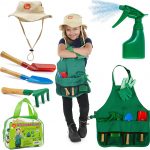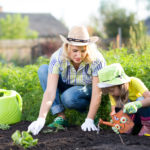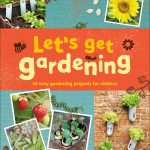Many parents are aware of the benefits of outdoors and fresh air for kids, but few know of the importance of gardening in early childhood. Gardening helps children learn about the environment, and acquire critical thinking skills that are transferable in other areas of their lives. There are several planting activities for toddlers that you can engage them in.
In this article, we will explore some of the benefits of gardening for children and how to get them involved. Check them out below!
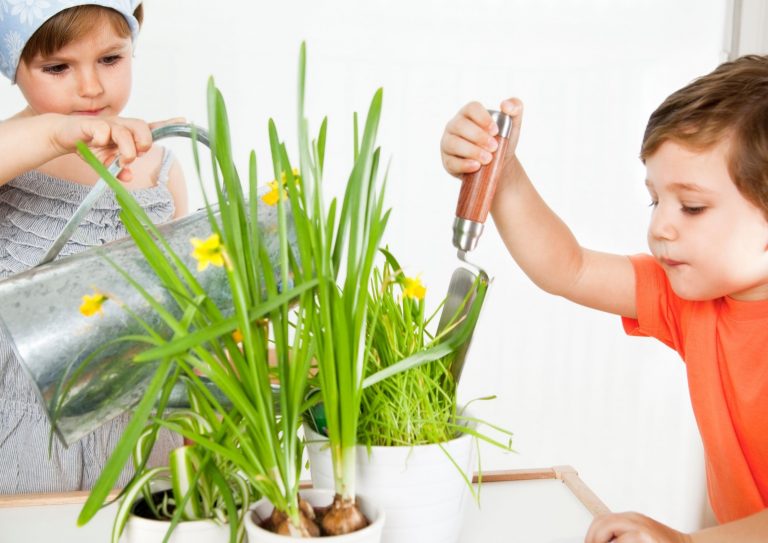
Sensory Exploration
Gardening can improve the senses of children. During gardening, children can feel the seeds, leaves, fruit, flowers, dirt, smell the fresh fruits, herbs, and flowers, hear the sound of vegetables/fruits being picked and the sound of leaves rustling and see the sizes and vibrant color of plants. What’s more, they can taste the results of their hard work! By heightening their senses, gardening can help kids understand where their food comes from and the process of food production.
Motor Skill Development
Gardening requires children to hone and exercise their fine motor skills. Planting activities for toddlers such as scooping dirt, watering plants, and planting seeds can help boost their motor skills, which can in turn enhance their learning and concentration capabilities.
Responsibility and Patience
Teaching your children about gardening can make them become more responsible. Gardening helps children understand that it is their job to take care of their plants and seeds each day to keep them healthy. By giving them a checklist of the things to do each day, children can better understand their role in taking care of the plants.
Gardening also teaches children to be patient. The waiting time for a flower to open up, or for a vegetable to be ready to pick, makes gardening even more exciting for children.
Introduction to Math and Science
Garden comprises many aspects that introduce children to fundamental concepts of math and science. Math concepts can include counting leaves/petals, counting seeds, and measuring soil depth. Science concepts can include understanding how plants require growth and water, and the sprouting process.
Promotes Healthy Eating
Getting children to eat their vegetables and fruits can be a challenge sometimes. However, when kids are engaged in every step of the process, they are more likely to take pride and gain a sense of ownership over their healthy eating habits. Growing their own plants will also help them understand the benefits of organic vegetables and fruits compared to non-organic ones.
Stress Relief
Stress can pose a significant health risk for children. Children often get stressed from fighting with siblings, homework, and school. Engaging them in a gardening activity can help reduce their stress. Studies have shown that gardening can help reduce cortisol levels. It lowers anxiety and promotes peace. Other studies have shown that gardening also lowers depression.
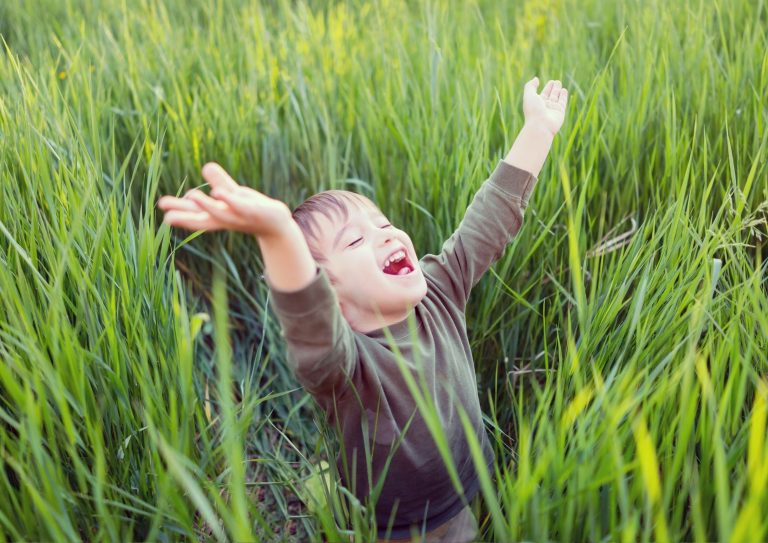

Social Skills Development
Gardening can boost social skills development at home and at school. Children can learn to cooperate with others and work together. They’ll enjoy discussing things such as how they planted their seeds or the different kinds of plants and flowers. The excitement over whose flower will spring out first will encourage children to engage and interact. Gardening also allows children to bond with each other and nurture and look after their flowers.
Education About The Environment
Another importance of gardening in early childhood is that it teaches children about the environment. It arouses their curiosity about the environment and enhances their respect for the environment. Such children grow up with an appreciation for the environment and are more likely to be observant of the environment and help conserve it.
Improves Creativity
Gardening activities also enhance the creativity of children. Though it might be a bit early to learn about topics such as landscaping, children can learn about how different combinations of flowers could make a garden look more beautiful.
Nourishes Self Confidence
Confidence is essential for the healthy development of children. Gardening activities help children feel more capable. Taking care of a plant, from when they sow it until it blooms, and seeing the outcome of their hard work can significantly improve their sense of competence. While the advantages of delayed gratification take a long time to teach, they’re absolutely worth it.
Important Considerations When Teaching Children The Importance of Gardening in Early Childhood
There are a few things a parent should consider when trying to get their children interested and involved in gardening. First, it’s important to keep everything simple and teach children about gardening in their own language. It’s also important to give children their own gardening space. It doesn’t have to occupy a large space. You can start with a few pots or a large container. This will instill some sense of responsibility. It’s crucial to involve them in the design and planning of the garden. Encourage them to dig in the dirt and grow interesting plants such as strawberries, tomatoes, pumpkins, corn, and sunflowers.
Ensure that you use the correct-sized garden equipment and tools. Ideally, they should be easy to handle and lightweight. Keep fertilizers and sprays out of reach and don’t use chemicals. Try to encourage your children to grow organic plants as much as possible. It’s also important to provide storage for the children where they can keep their gardening tools and equipment. Ensure that where it’s appropriate, children wear suitable clothing, gumboots, sunscreen, and a hat. Don’t leave water buckets unattended around toddlers and very young kids.
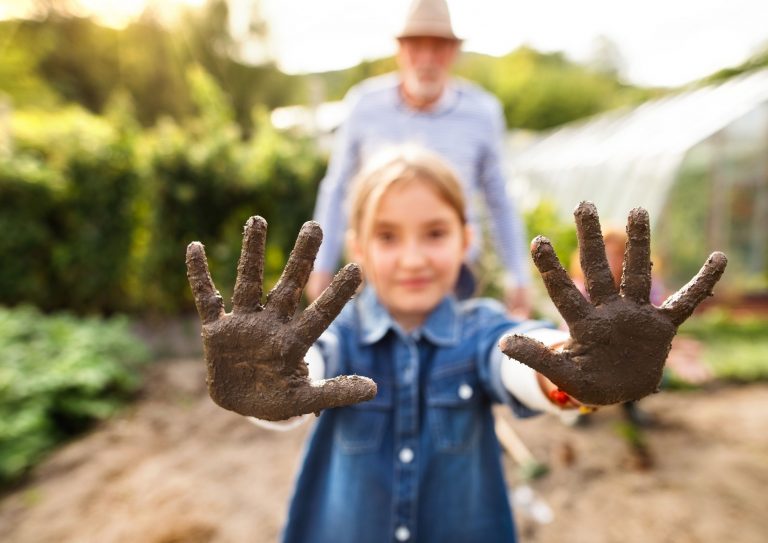

Final Words – The Importance of Gardening in Early Childhood
There are various gardening activities to engage children and get them to learn more about gardening. Some of the most common activities include watering the garden, picking flowers, digging, planting flowers, vegetables, and fruits, reporting, and replanting, among others.
It is essential to get children involved in these gardening activities to develop their senses, motor skills, responsibility, patience, math and science skills, social skills, creativity, as well as promote healthy eating and relieve stress. Parents should always consider the importance of gardening in early childhood for more holistic child development.
Related Posts
-
8 Best Kids Gardening Tools for your Little Gardener
In this article, we'll discuss the best kids gardening tools to help boost love for…
-
7 Best Kids Gardening Gloves - Parent Guide for Toddlers and Children
In this article, we have rounded the 7 Best kids gardening gloves for your budding…
-
Gardening Gifts for Kids - Our 2023 Guide for Parents
Thinking what to give your child as a birthday or Christmas present? Well think no…

